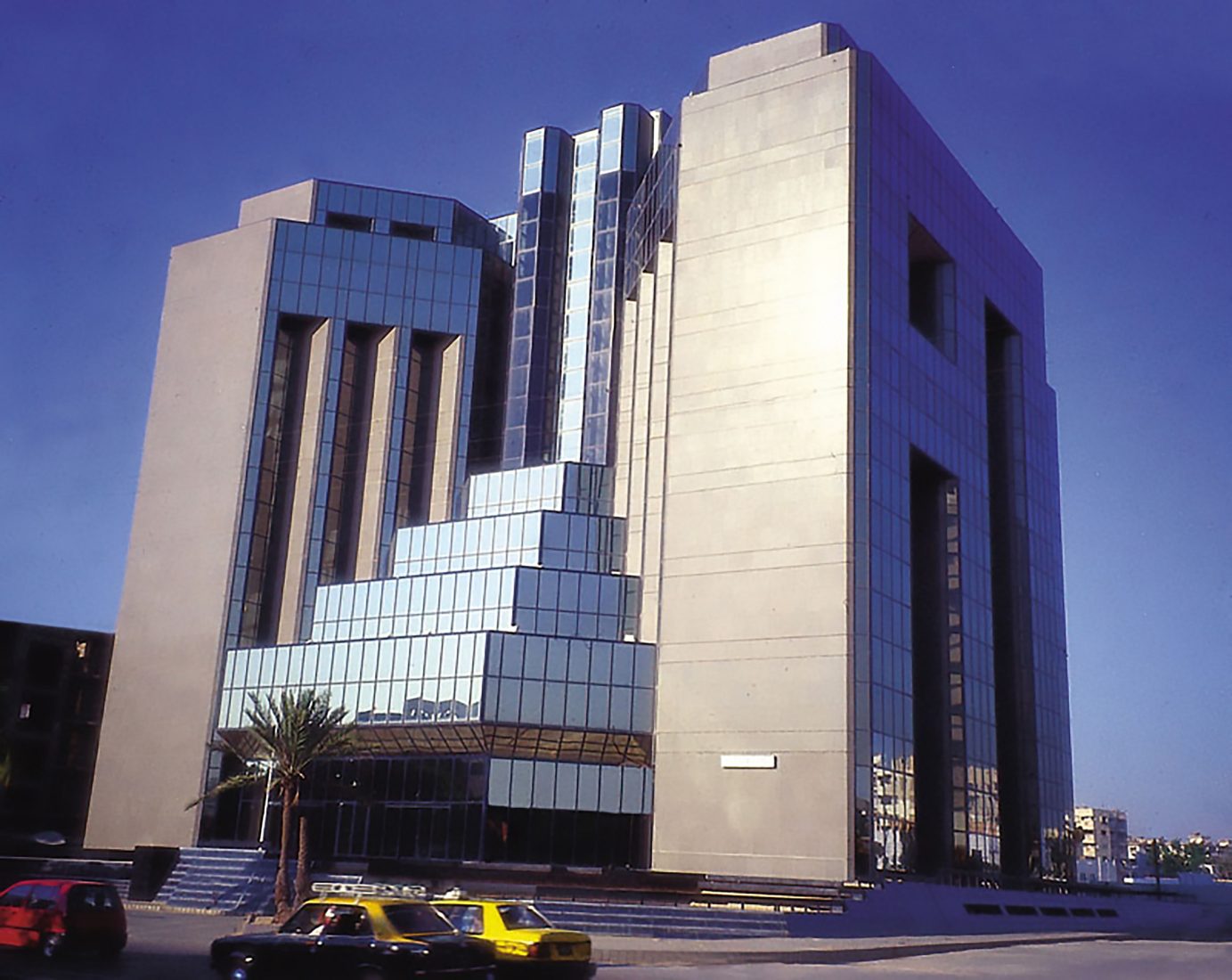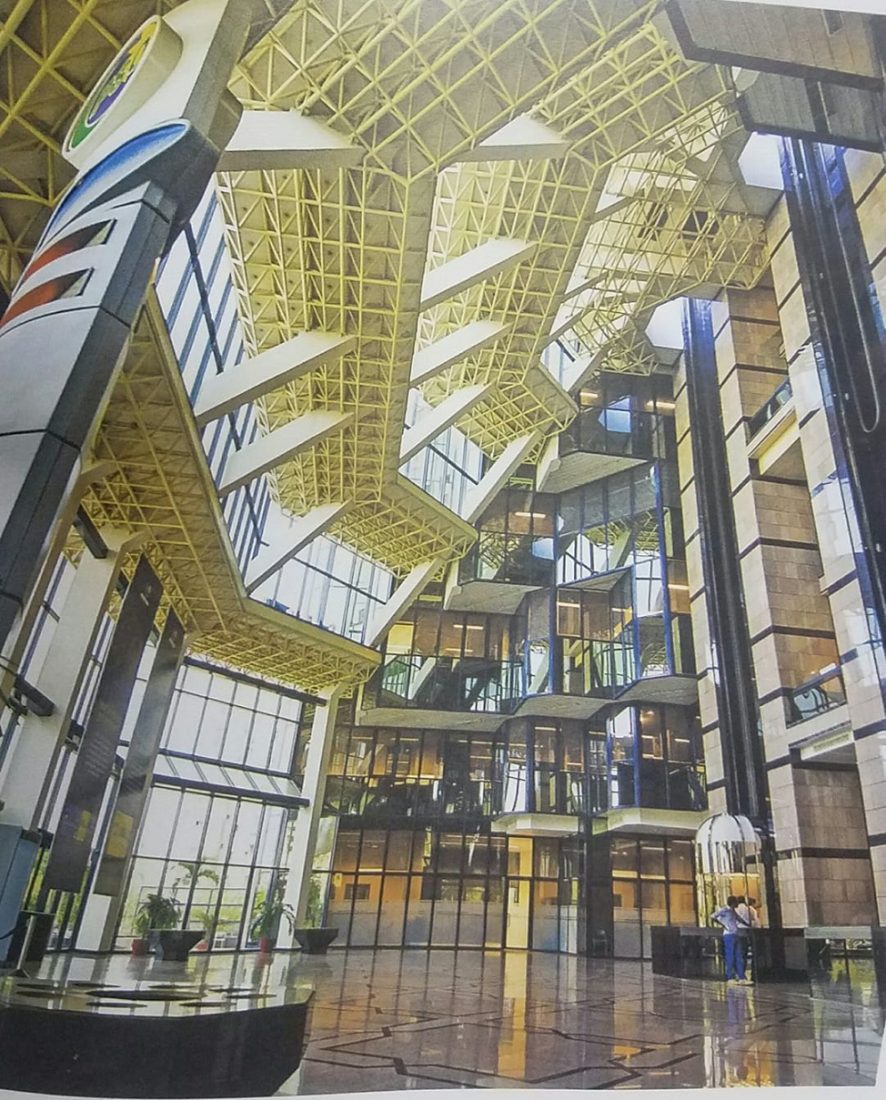The ‘inspirational’ 82-year-old, who became famous first for her Brutalist buildings, then for her ‘second career’ championing humanitarian architecture, will collect the 174th Royal Gold Medal in June.
Born in Pakistan in 1941, Lari trained as an architect in the UK then opened her own practice in Pakistan aged 23. She achieved ‘starchitect’ status over her 40-year career, designing major international corporate landmarks out of glass, steel and cement, including the Pakistan State Oil House and Karachi’s finance and trade centre.
But she retired from mainstream practice in 2000 to dedicate herself to designing accessible, zero-carbon construction techniques for communities displaced by the impact of climate change. Her work with materials including earth, lime and bamboo led to her becoming known as ‘the barefoot architect’.
Advertisement
Lari founded the Heritage Foundation of Pakistan with her husband Suhail Zaheer Lari in 1980, through which the couple pioneered self-build sustainable shelter designs, creating 50,000 dwellings.
Speaking of her career u-turn in an interview with the AJ last month, Lari said: ‘I don’t believe in money any more. I think the less money there is, the better you can perform because then you are actually able to make use of resources far better. So I don’t want much money coming into my country.’
The RIBA’s Honours Committee, which chose Lari to win the medal, said: ‘whilst recognising the importance of her role in practice, as a symbol of change in Pakistan, it is the work she has undertaken since her retirement in 2000 that the Royal Gold Medal celebrates.’
The committee praised her ‘robust, intelligent yet simple, architectural designs that allow those who are in distress to build for their own needs, using the available debris of disaster’, and her ‘model of reuse and reinvention that engages and empowers’.
Reacting to the award, Lari said: ‘I was so surprised to hear this news and of course totally delighted! I never imagined that as I focus on my country’s most marginalised people — venturing down uncharted vagabond pathways – I could still be considered for the highest of honours in the architectural profession.
Advertisement
‘RIBA has heralded a new direction for the profession, encouraging all architects to focus not only on the privileged but also humanity at large that suffers from disparities, conflicts and climate change.
‘There are innumerable opportunities to implement principles of circular economy, degrowth, transition design, eco-urbanism, and what we call ‘barefoot social architecture’ (BASA) to achieve climate resilience, sustainability and eco justice in the world.’
RIBA president Simon Allford, who chaired the award committee, said it was an ‘honour’ to have chosen Lari, who he described as ‘inspirational’ for her move from large, international practice to humanitarian causes.
He explained: ‘Lari’s mission during her “second” career has empowered the people of Pakistan through architecture, engaging users in design and production. She has shown us how architecture changes lives for the better.’
Allford described Lari’s work in zero carbon and zero waste construction as ‘exemplary’, describing how she has ‘reacted imaginatively and creatively, making affordable projects that address the real and often urgent need for accommodation, and basic services, but with generosity and an eye for the potential of everyday materials and crafts to make architecture at all scales’.
He added: ‘Her way of working also sets out to address the physical and psychological damage caused by major natural disasters – disaster that sadly inevitably will be ever more prevalent in our densely populated and climate challenged planet.’
Lari has already won a number of other prestigious architecture awards throughout her career, including the UNESCO Recognition award in 2002, the Sitara-e-Imtiaz from the President of Pakistan in 2006, the Fukuoka Prize for Asian Arts and Culture in Japan in 2016, and the international Jane Drew Prize in London in 2020.

Source:Heritage Foundation of Pakistan
Lari outside the women’s centre she designed in Sindh province which is built to withstand floods
RIBA Honours committee citation
Having studied in the UK at Oxford Polytechnic (now Oxford Brookes), Yasmeen Lari took the decision to return to Pakistan where she became the country’s first female architect. She then overcame considerable challenges to establish her own commercially successful practice working for major government, business, and financial institutions.
While recognising the importance of her role in practice, as a symbol of change in Pakistan, it is the work she has undertaken since her retirement in 2000 that the Royal Gold Medal celebrates.
In the last 23 years Lari and The Heritage Foundation of Pakistan, which she founded with her husband, has reacted imaginatively and creatively to the physical and psychological damage that a number of major natural disasters; earthquakes, floods and conflicts have inflicted on the people of Pakistan.
Her work is distinguished by the fact that it has focused on developing robust, intelligent yet simple, architectural designs that allow those who are in distress to build for their own needs using the available debris of disaster. This is a very different, but also very relevant, model of re-use and reinvention that engages and empowers.
Continuing to test the potential of this architectural activity further, Lari has developed and shared a design and construct self-build model for shelters, using readily available bamboo to create economical and beautiful braced frames for inhabitation. This is a model of structure and enclosure that fulfils the need for long life, loose fit, and in her case, zero carbon architecture. There is an inherent generosity in Lari’s architectural activity that responds to need, helps communities develop artisanal skills and always utilises available resource.
Lari’s design for 60,000 Chulah Cookstoves structures are a self-build version of the traditional Pakistani stove that enhances food preparation, hygiene and quality while creating a place for community.
Lari’s work builds on her commitment to recycling materials and buildings
Always working to empower the most challenged communities at the most difficult times, Lari has most recently developed designs for a system that allows the construction of 100 emergency shelters in four days.
Now working on the repair and regeneration of a key district of historic Lahore, Lari’s work builds on her commitment to recycling materials and buildings. This suggests another model of conservation and builds on the promise of her important early work in Lahore: the Anguri Bag housing scheme.
Lari’s vital contribution identifies different ways of working which suggest how the international architecture profession can play an ever more useful role in helping communities to help themselves, while also responding to climate change.
It is Lari’s focus on architecture as a complete and vital social, cultural, economic and aesthetic model, as well as her mantra of ‘low cost, zero carbon, zero waste’ that makes her hugely relevant to all who practice today.
The 2023 Royal Gold Medal selection committee members
Simon Allford, RIBA president (chair)
Ivan Harbour, architect and senior partner at RSHP
Cornelia Parker artist and Royal Academician
Neal Shasore, Chief executive and head of school at the London School of Architecture
Cindy Walters, architect and partner at Walters & Cohen
List of key projects by Yasmeen Lari
- Angoori Bagh Housing (1978), Pakistan, the country's first public housing plan
- Taj Mahal Hotel (1981), Karachi, Pakistan
- Finance and Trade Centre (1989), Karachi, Pakistan
- Pakistan State Oil House (1991), Karachi, Pakistan
- Women's Centre (2011), Darya Khan, Pakistan

Source:© Heritage Foundation of Pakistan
Lari House, Karachi, 1982
Gold Medal winners in the 21st century
2000 - Frank Gehry
2001 - Jean Nouvel
2002 - Archigram
2003 - Rafael Moneo
2004 - Rem Koolhaas
2005 - Frei Otto
2006 - Toyo Ito
2007 - Herzog & de Meuron
2008 - Edward Cullinan
2009 - Álvaro Siza Vieira
2010 - IM Pei
2011 - David Chipperfield
2012 - Herman Hertzberger
2013 - Peter Zumthor
2014 - Joseph Rykwert
2015 - Sheila O’Donnell and John Tuomey (as co-founders of O’Donnell + Tuomey)
2016 - Zaha Hadid
2017 - Paulo Mendes da Rocha
2018 - Neave Brown
2019 - Nicholas Grimshaw
2020 - Grafton Architects (co-founded by Shelley McNamara and Yvonne Farrell)
2021 - David Adjaye
2022 - B. V. Doshi
 The Architects’ Journal Architecture News & Buildings
The Architects’ Journal Architecture News & Buildings









Many congratulations to Yasmeen Lari on this recognition of her courageous pioneering work, responding in the field to urgent and pressing needs and empowering women. Here in UK we also need more opportunity for self-build.